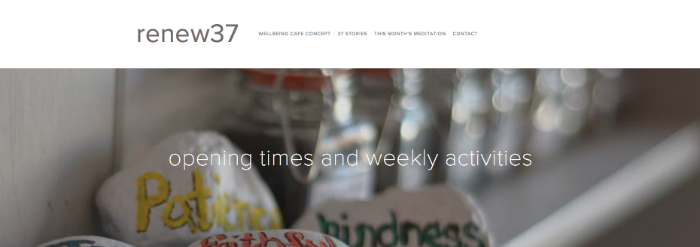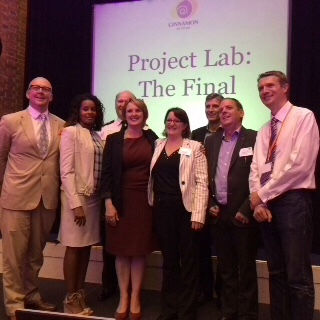National award for wellbeing café
-
Renew 37, led by New Life Baptist Church in Nottingham, has won a national award to replicate its ministry
-
Café aims to foster good emotional and mental wellbeing in its community
-
'We have been amazed at how many people want to pray'

The café launched last year and aims to be a community space for everyone, a kind of 'shared front room'. It aims to foster good emotional and mental wellbeing with activities inspired by the nationally recognised five ways to wellbeing.
Throughout the week it offers a variety of workshops and activities, and has strong community partnerships. This all contributed to Renew 37 being a joint winner of the Cinnamon Project Lab, a national competition for local church-size social action projects who have a vision to replicate through other local churches across the UK. It will receive £15,000 funding as well as access to expert advice and government and market contacts.
'We are so excited to have won the prize,' said Ruth Rice, pastor of New Life. 'Renew 37 is a space for all of us to attend to our wellbeing as equals, to connect, learn, get active, take notice and give. Not volunteers and service users, but humans sharing hobbies and habits.
'Winning the prize is confirmation that we are on the right track with what God is up to in the area of mental health and wellbeing.'

Cinnamon Project Lab had more than 250 applicants. In the final each had seven minutes to talk about their project and answer questions before a judging panel. Renew 37 was a joint winner, along with Care Home Friends.
Explaining its success, Mark Kitson of the Cinnamon Network said, 'Ruth has tried and tested different models of working with mental health over seven years, and has developed strong and effective partnerships in her community and with her council.
'As a result, Renew 37 has a strong model and methodology that it can train other churches to use.'
The prize money will help Ruth to aid other churches to set up similar projects with the idea of seeing spaces like Renew 37 opening across the country. The Cinnamon Network emphasises the idea of replication not duplication.
'It’s much quicker and less expensive in the long run to follow a tried and tested methodology. It also means that your project becomes part of a whole, a movement, a national solution,' said Mark.
Ruth’s advice for other churches looking to do similar was that it could be anything as little as two hours a week, as long as it is in a place where people normally feel at home and have access to refreshments, as well as a quiet prayer area. Cafés work, but don’t have to be within a church building; Renew 37 shares a space with an existing café, avoiding complicated catering arrangements.
'Keeping it simple is essential and the renew team can help read a community and work out where the best place might be. The idea is simple … be prayerful, be present and be in partnership with your mental health team,' she said. 'It’s very often more of an unlearning process for a church as this is not a service, not a “them and us” ministry. I have loved how the “them and us” of Christian and not yet Christian has not been important.'
She said Renew 37 has given the church opportunities to spend time and listen, learning about other’s strengths and gifts. There has been an opportunity for learning about mental health issues and how to treat people suffering from mental health issues, treating them not like projects, but like people.
'It is not programmes and services that are essential, but just showing up and being fully present to God and each other. We have been amazed at how many people want to pray … people are not rejecting God, just what we call church,' said Ruth.
The project has not only benefited the community, but the church too. As the minister, Ruth has found more opportunities to spend time with people and less home visits, as people help each other.
The café has also reduced the stigma around mental health by reducing ignorance and fear. It unites a community with a variety of mental and emotional health issues and allows them to share hobbies and habits. It serves as a place for anyone who needs a place not to be ok.
'We understand each other’s stories better, celebrate each other’s strengths, bear with each other’s weaknesses in an unhurried way,' said Ruth. 'We don’t talk about people having “physical health” yet we all have bodies. We all have mental health. The way we use language is changing here.
'I do believe it is time for every church to find ways to be church differently for those struggling daily with the balance of their minds.
'God hears their cry, hears our cry ... and calls us to slow down, be present, turn our prayer and wellbeing habits inside out and sit alongside those struggling.'
Compiled by Kira Taylor
Baptist Times, 11/08/2016